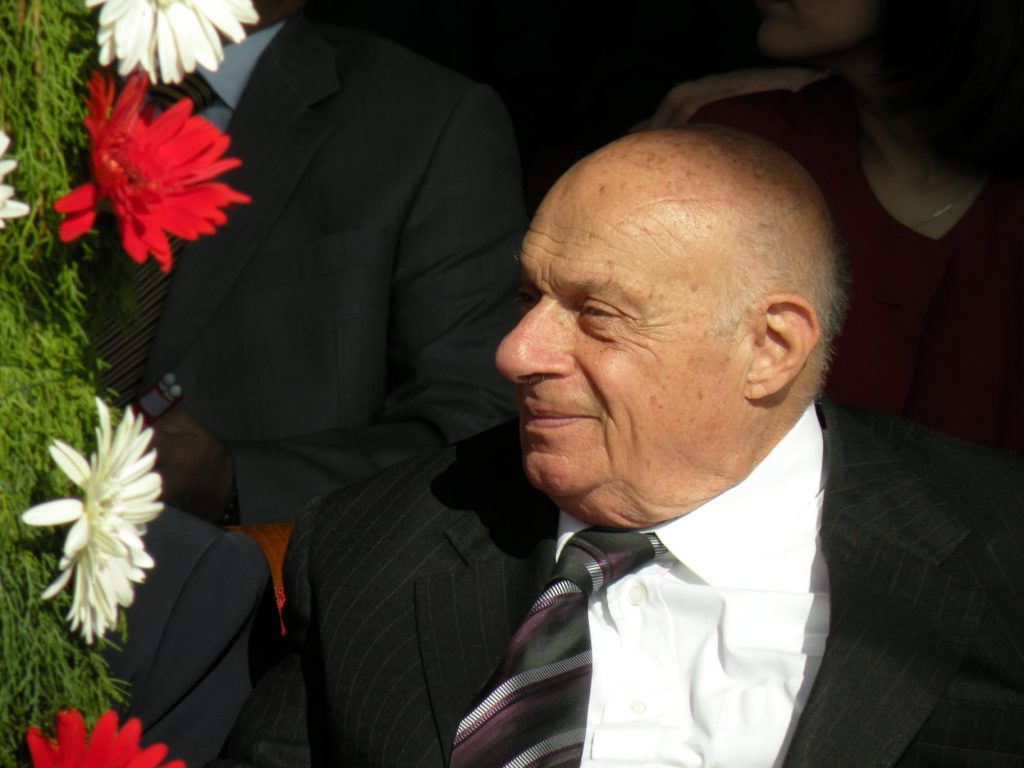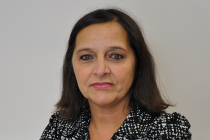Ten years ago today, Rauf Raif Denktaş – the man many people regard as the father of the Turkish Cypriot nation – passed away at Near East University Hospital from multiple organ failure.
The former President of the Turkish Republic of North Cyprus’ (TRNC) health had been deteriorating following a stroke he suffered in May 2011 and his death, on 13 January 2012, was a fortnight shy of his 88th birthday.
Tens of thousands of people, including many dignitaries from Turkey and beyond, attended his funeral.
Each year, on the anniversary of Rauf Denktaş’s death, Turkish Cypriots around the world mourn his passing while remembering with affection his many achievements.
Here are ten facts about this incredible man.
1. FAMILY
Rauf Raif Denktaş was born in Baf / Paphos, Cyprus, on 27 January 1924, while the island was under British rule. His parents were judge Raif Mehmet Bey and homemaker Emine Hanim. Young Rauf lost his mum when he was just one-and-half years old and he was brought up by his grandparents.
2. EDUCATION
He was sent to Istanbul for his schooling in 1930, where he was a boarder first at a primary school in Arnavutköy, and then at Fevzi Ati Lisesi. After completing his junior high school, the young Rauf returned to the island in 1941 where he continued his education at The English School in the capital Lefkoşa / Nicosia.
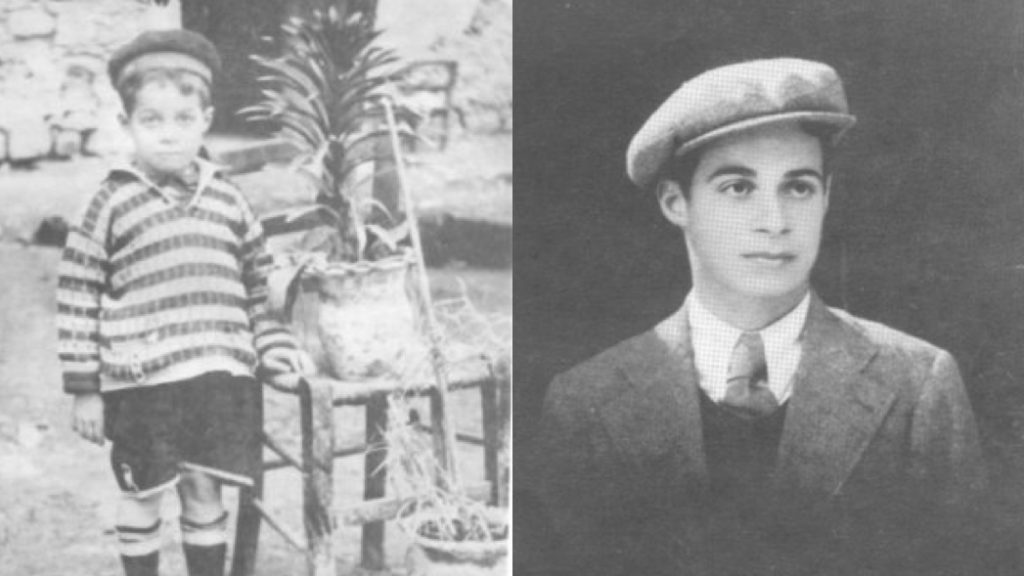
He initially became a teacher, but soon after opted to follow in his father’s footsteps and went to London where he trained at Lincoln’s Inn, graduating as a lawyer in 1947.
3. CAREER & PUBLIC SERVICE UNDER BRITISH RULE
Rauf Denktaş returned to Cyprus after becoming a barrister, and started his career as a crown prosecutor in 1949, rising to the post of Chief Crown Prosecutor in 1956.
During this time, Denktaş also sat on the Turkish Affairs Committee and was a member of the Consultative Assembly that comprised of 10 Greek Cypriots, seven Turkish Cypriots, and one Maronite Cypriot. An initiative of colonial Britain, the Consultative Assembly’s aim was to explore limited self-rule for Cyprus.
4. FORMING TMT
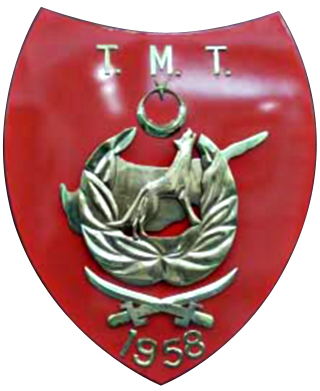 Together with Burhan Nalbantoğlu and Mustafa Kemal Tanrısevdi, Rauf Denktaş founded the Türk Mukavemet Teşkilatı (TMT) in November 1957.
Together with Burhan Nalbantoğlu and Mustafa Kemal Tanrısevdi, Rauf Denktaş founded the Türk Mukavemet Teşkilatı (TMT) in November 1957.
Turkey initially offered no support to this Turkish defence militia, which was formed during the Cyprus Emergency (1955-59) at a time when violence against British soldiers and officials, and the Turkish Cypriot community were intensifying. The murderous attacks were carried out by Greek Cypriot terror group EOKA, who wanted to end British rule and instead unite Cyprus with Greece (Enosis).
Within a year, TMT was established in Turkish villages across the island, and involved men and women of all ages who sought to defend their local communities from armed EOKA attack. TMT’s first leader was Turkish military officer Rıza Vuruşkan.
TMT resurfaced after the December 1963 Bloody Christmas coup, as Turkish Cypriots sought to survive the decade-long onslaught they faced from EOKA-B.
5. BEING FORCED INTO EXILE
After the Bloody Christmas coup and the London Conference in January 1964, the Greek Cypriot President, Archbishop Makarios, declared Rauf Denktaş as ‘persona non grata’ and he was forced into exile. He was caught trying to sneak back on to the island in 1967 and after extensive pressure, was handed over to Turkey. The following year, the Greek Cypriots lifted the ban on Denktaş entering Cyprus.
6. A PROLIFIC WRITER
Rauf Denktaş was a prolific writer. He had started to write for Dr Fazıl Küçük’s paper Halkın Sesi (the People’s Voice) once he had finished high school. He went on to pen everything from poems to history books. 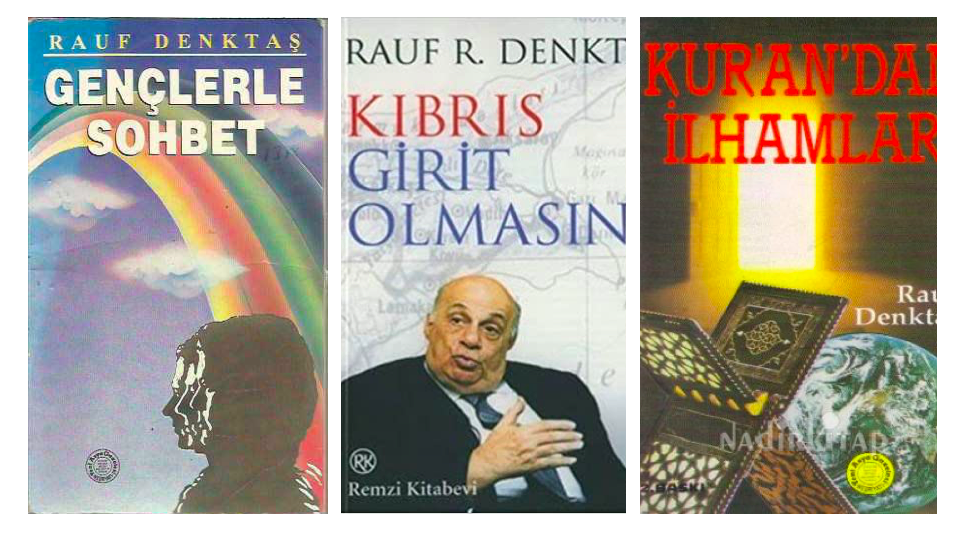
Among his many published works were: Saadet Sırları / Secrets of Happiness (1941), Ateşsiz Cehennem / Hell without Fire (1944), The Akritas Plan (1968), Kadın ve Dünya / Woman and The World 1985), Kuran’dan İlhamlar / Inspiration from The Qur’an (1986), and Atatürk, Din ve Laiklik / Atatürk, Religion and Secularism (1989).
7. FROM REPUBLIC OF CYPRUS TO TURKISH FEDERATED STATE
Rauf Denktaş served in multiple senior official roles in Cyprus. When the island won independence from Britain in 1960, and the Republic of Cyprus was established, Denktaş was elected as the President of the Turkish Communal Chamber. In 1973, he became Vice-President of the Republic.
After the 1974 War, when the island was formerly split into two ethnic zones, he first became the President of the Autonomous Turkish Cypriot Administration (1974 to 1975), and when the Turkish Cypriots declared the Turkish Federated State of Cyprus, he served as its president between 1975 and 1983.
8. MARRIAGE AND HEARTACHE
Rauf Denktaş married Aydın in 1949. The couple had six children, three girls and three boys, but sadly lost three of their children.
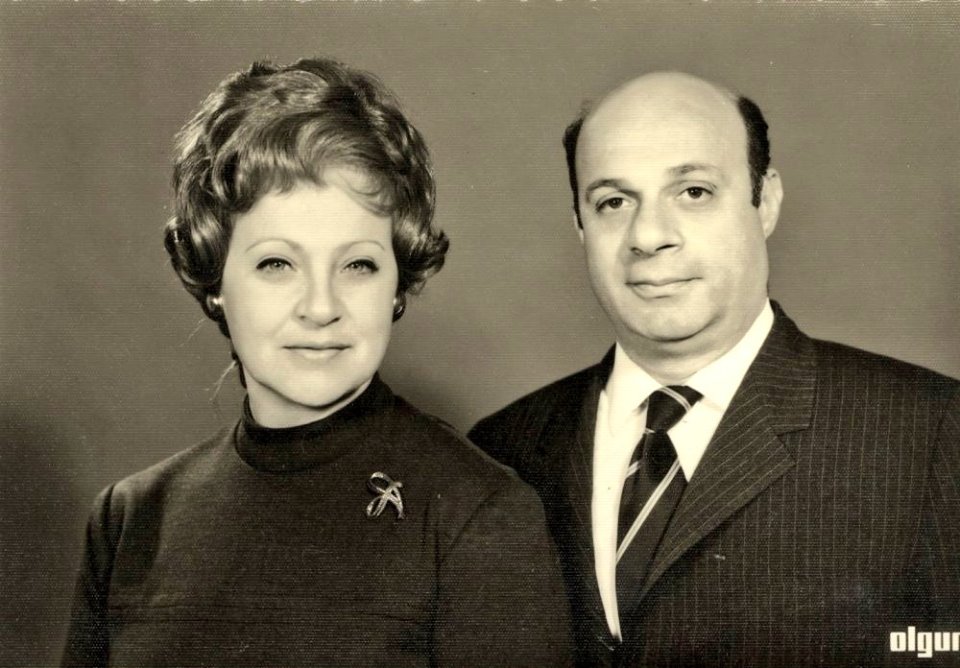
Their first heartache was when their daughter Dilek died aged 3. A year later, their son Munir died in surgery. In 1985, their eldest child Raif died in a car crash aged 34. Their remaining children are Serdar, a former TRNC Deputy Prime Minister, and twin daughters Ender and Değer.
9. DECLARING THE TRNC
The TRNC was the brainchild of Rauf Denktaş, who first started touting the idea of a Turkish Cypriot state in the 1970s. Initially Turkey did not support the idea of a unilateral declaration of independence, as it was unlikely to get any support from the international community so, despite the support of the leader of the right-wing faction, including the National Unity Party (Ulusal Birlik Partisi) and Prime Minister Mustafa Çağatay for their own state, Turkish Cypriots were forced to establish the Turkish Federated State of Cyprus.
Things escalated in 1983 with the passing of UN Resolution 37/253. Although Bangladesh, Malaysia, Pakistan, Somalia and Turkey voted against the Resolution, 105 states backed the Greek Cypriot position on 13 May 1983.
Resolution 37/253 stated that the UN gave its “full support for the sovereignty, independence, territorial integrity, unity and non-alignment of the Republic of Cyprus,”, while affirming “the right of the Republic of Cyprus and its people to full and effective sovereignty and control over the entire territory of Cyprus and its natural and other resources and calls upon all states to support and help the Government of the Republic of Cyprus to exercise these rights and made “demands [for] the immediate withdrawal of all occupation forces from the Republic of Cyprus”. It further called for the “voluntary return of the refugees to their homes in safety”.

The Resolution undermined the fundamental rights of the Turkish Cypriot people and also contradicted the bi-zonality principle set out in the two High Level Agreements of 1977 and 1979.
In June 1983, the Assembly of the Turkish Cypriot Turkish Federated State of Cyprus passed by majority vote a motion on the right to self-determination. Five months later, on 15 November, the Turkish Cypriot Assembly unanimously backed the declaration to establish the TRNC.
The TRNC’s first president was Rauf Denktaş, who went on to serve four terms. In total, he was TRNC President for 21 years, five months and 9 days.
Even on his deathbed, Denktaş’s final words were to urge his people to preserve the TRNC.
10. TWO FLAGS
Rauf Denktaş was an ardent supporter of close relations with “motherland Turkey”. One of his most famous poems was İki Bayrak / Two Flags:
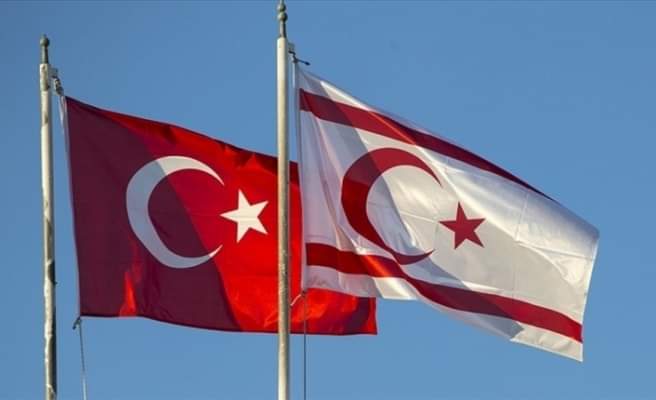
Benim iki bayrağım var
Biri ana, birisi kız.
Benim iki bayrağım var
İkisininde bağrında
Namusumdur ayla yıldız.
Biri damarlarımda kan,
Biri alnımda aktır.
Benim iki bayrağım var
Birisi gönül yarası,
Biri tükenmeyen aşktır.
Biri yüreklerde sabır,
Biri yaştır kirpiklerde.
Benim iki bayrağım var
Gölgesi üstüme düşer.
Biri Anamur’da gurup,
Biri Girne’de şafaktır.
Benim iki bayrağım var
Biri yurdumun tapusu,
Biri kan bedeli, haktır.
Biri dudaklarımda duam,
Biri gözlerde amindir.
Biri güneş gibi sıcak,
Biri ay gibi serindir.


